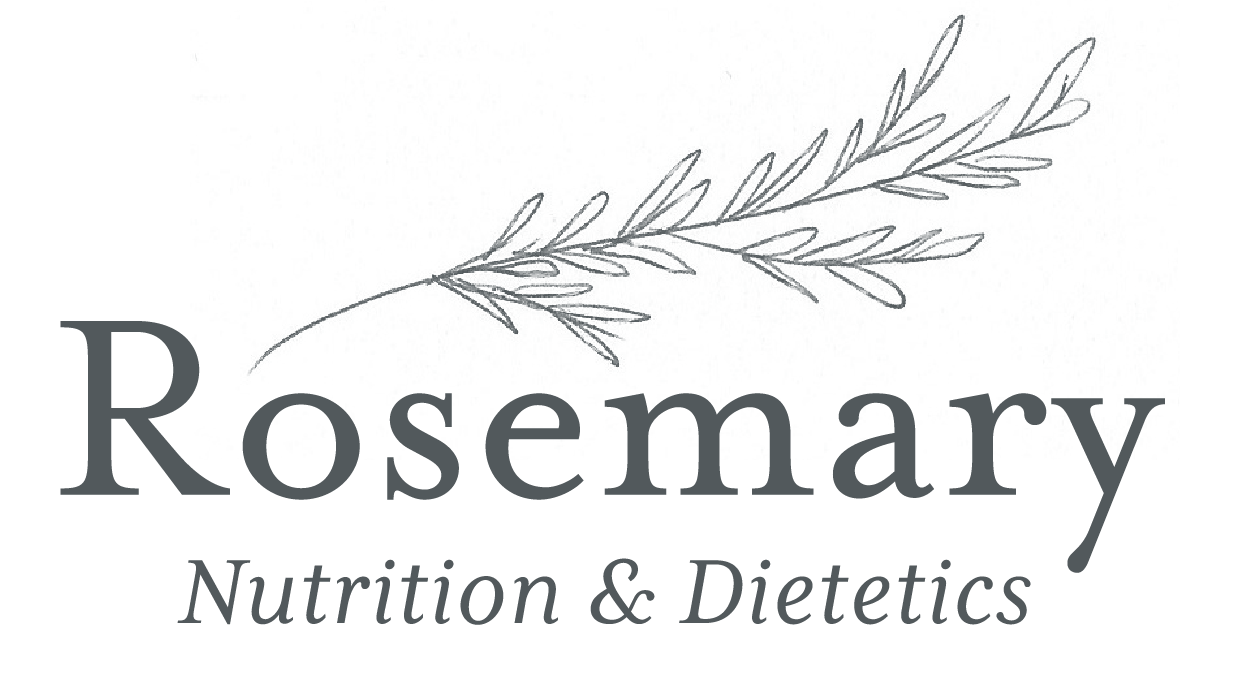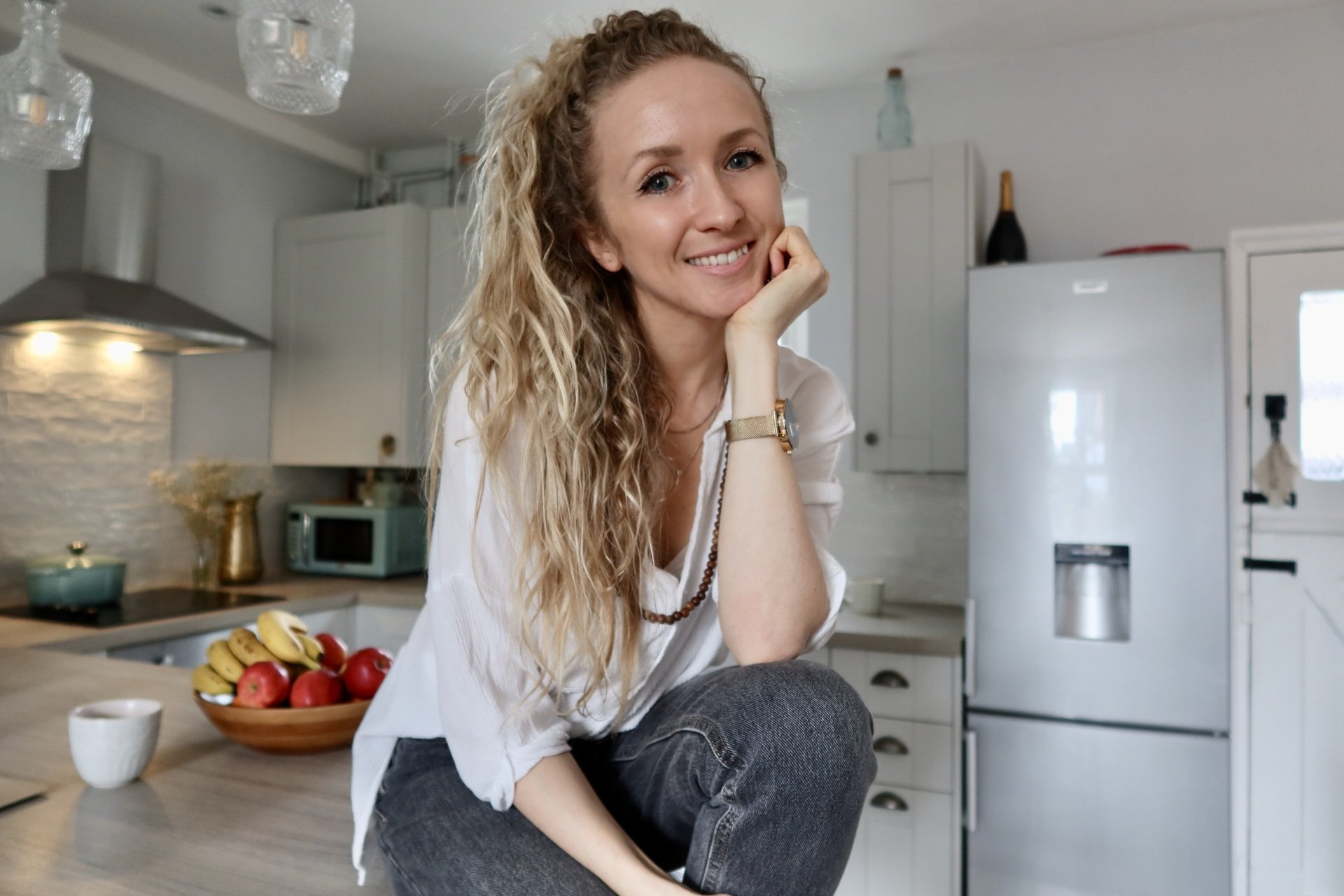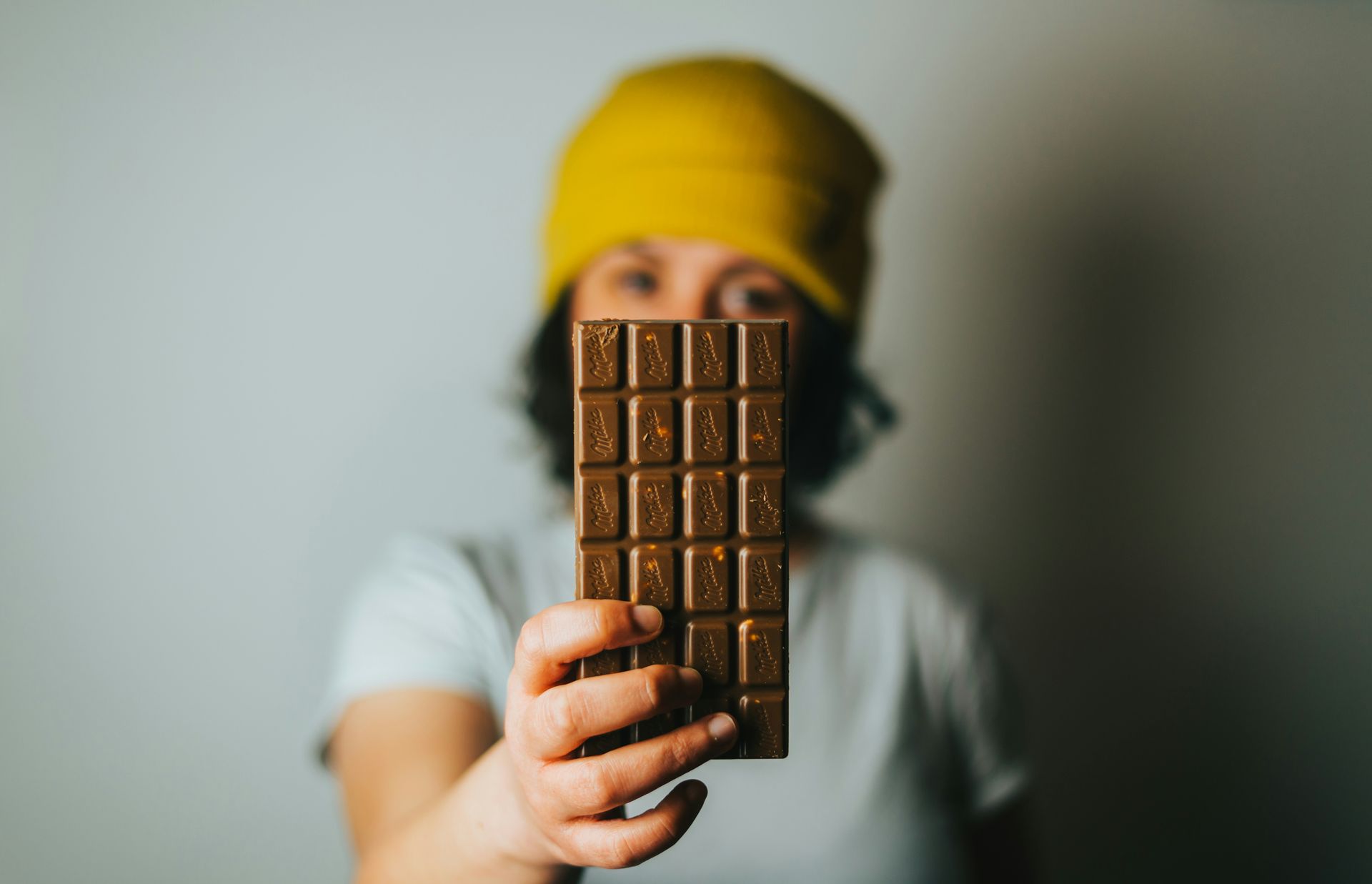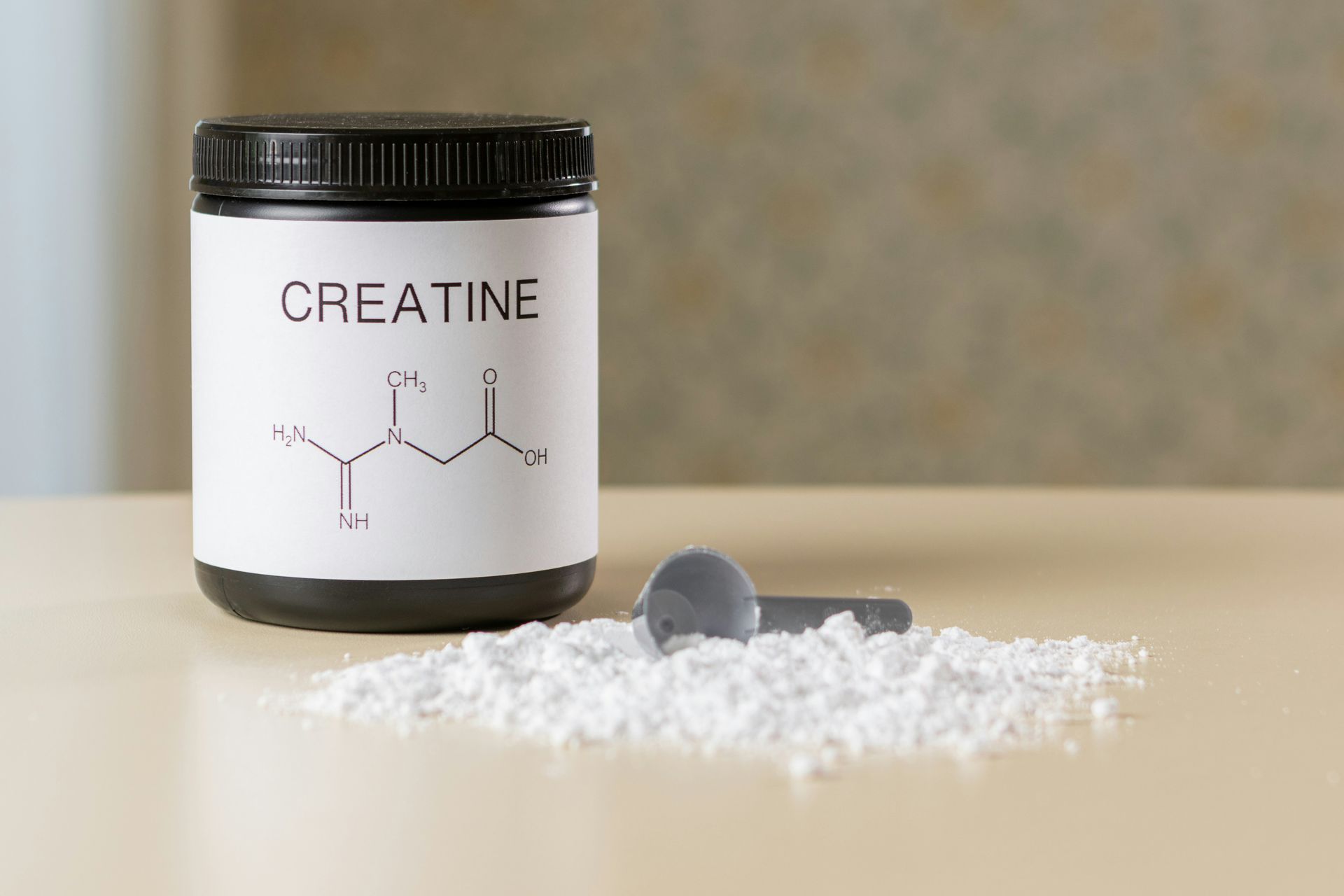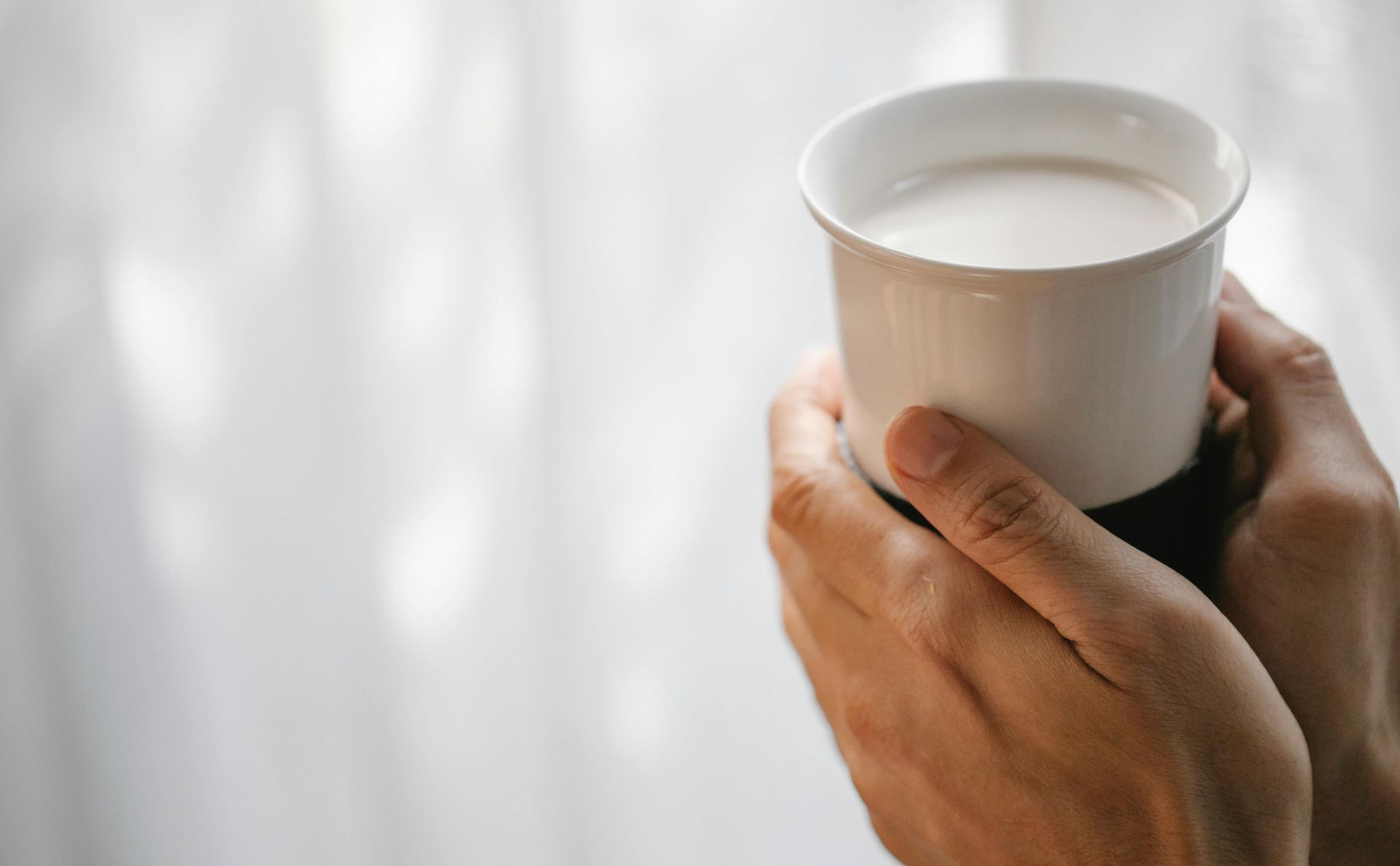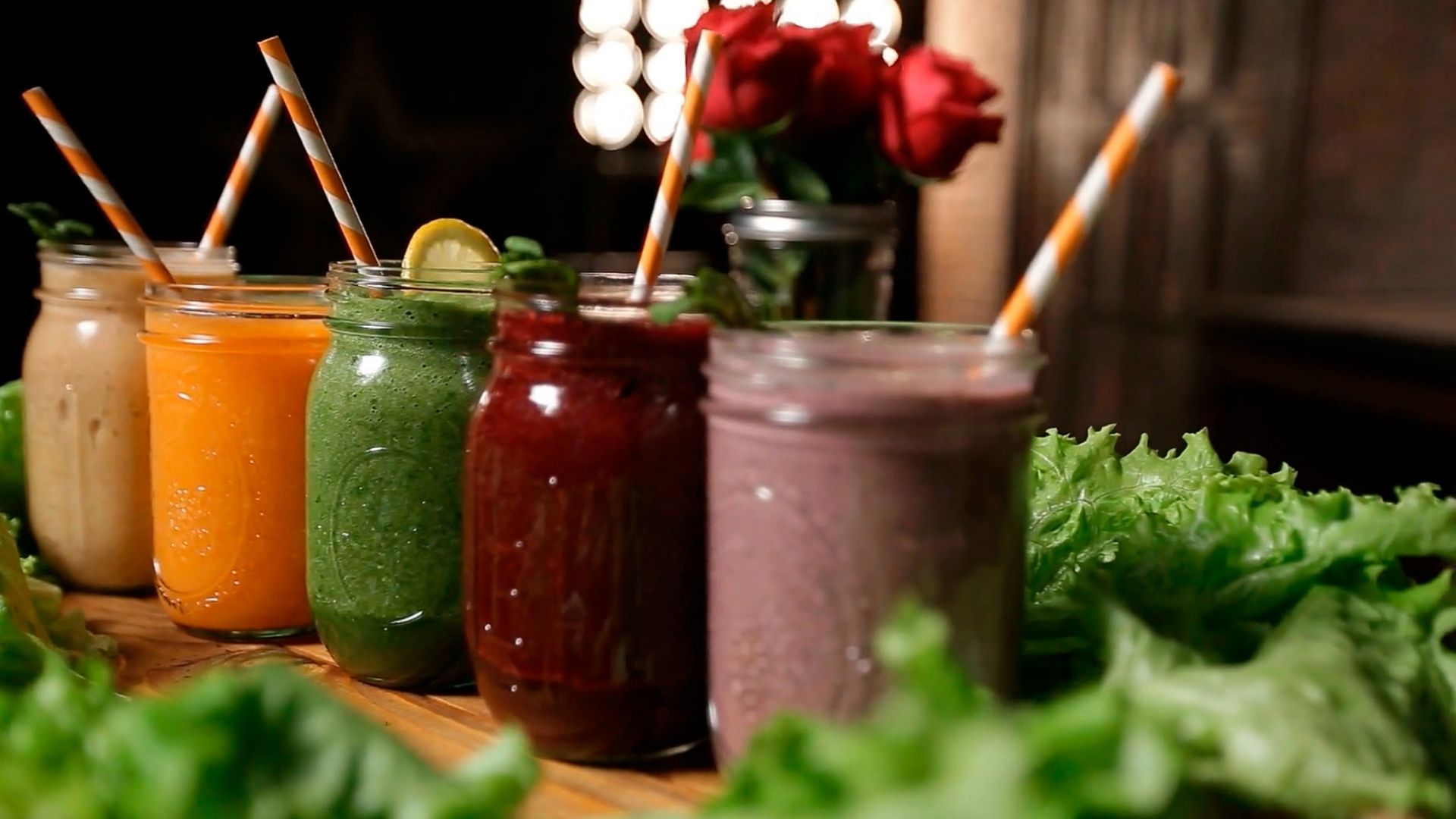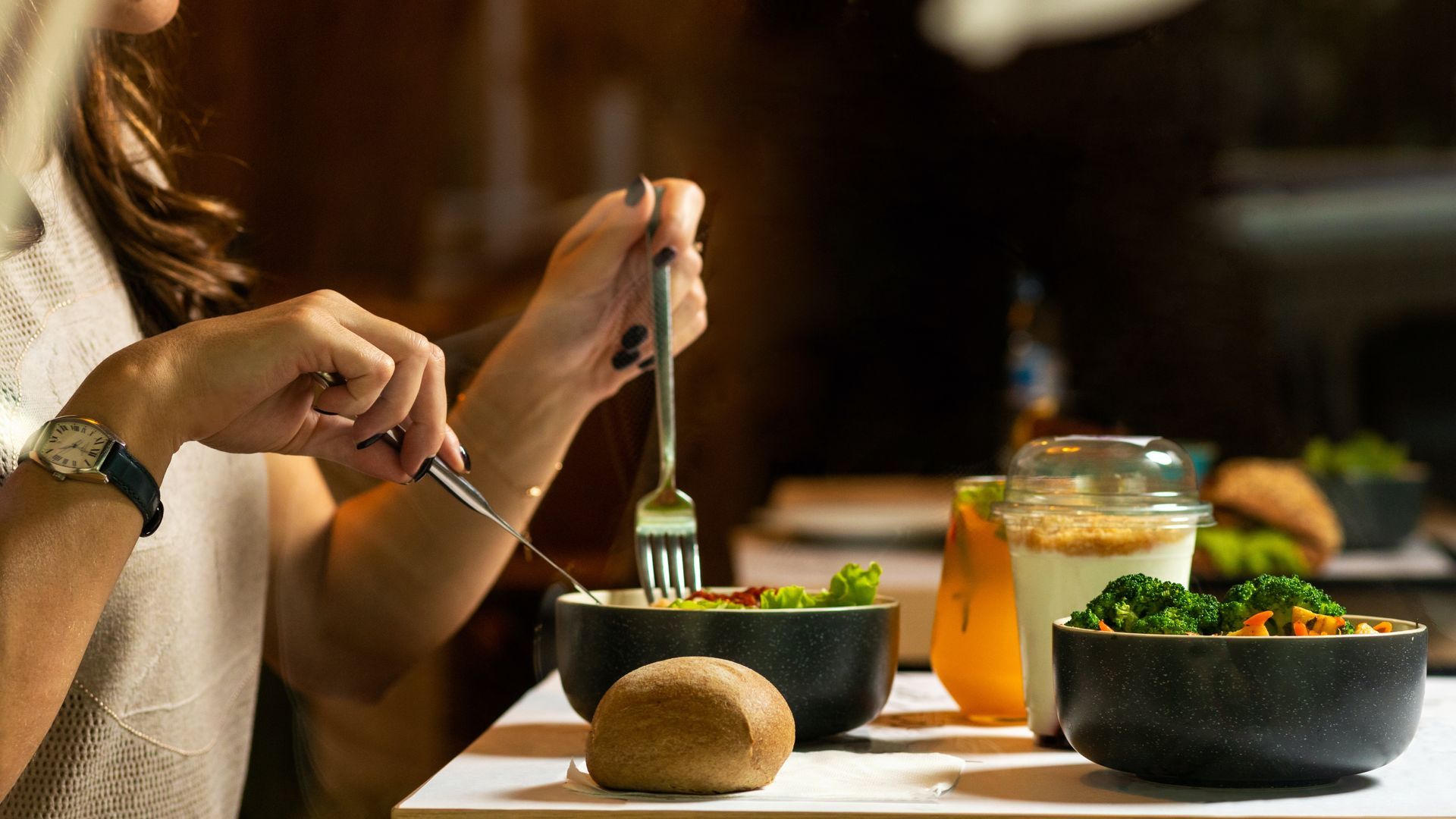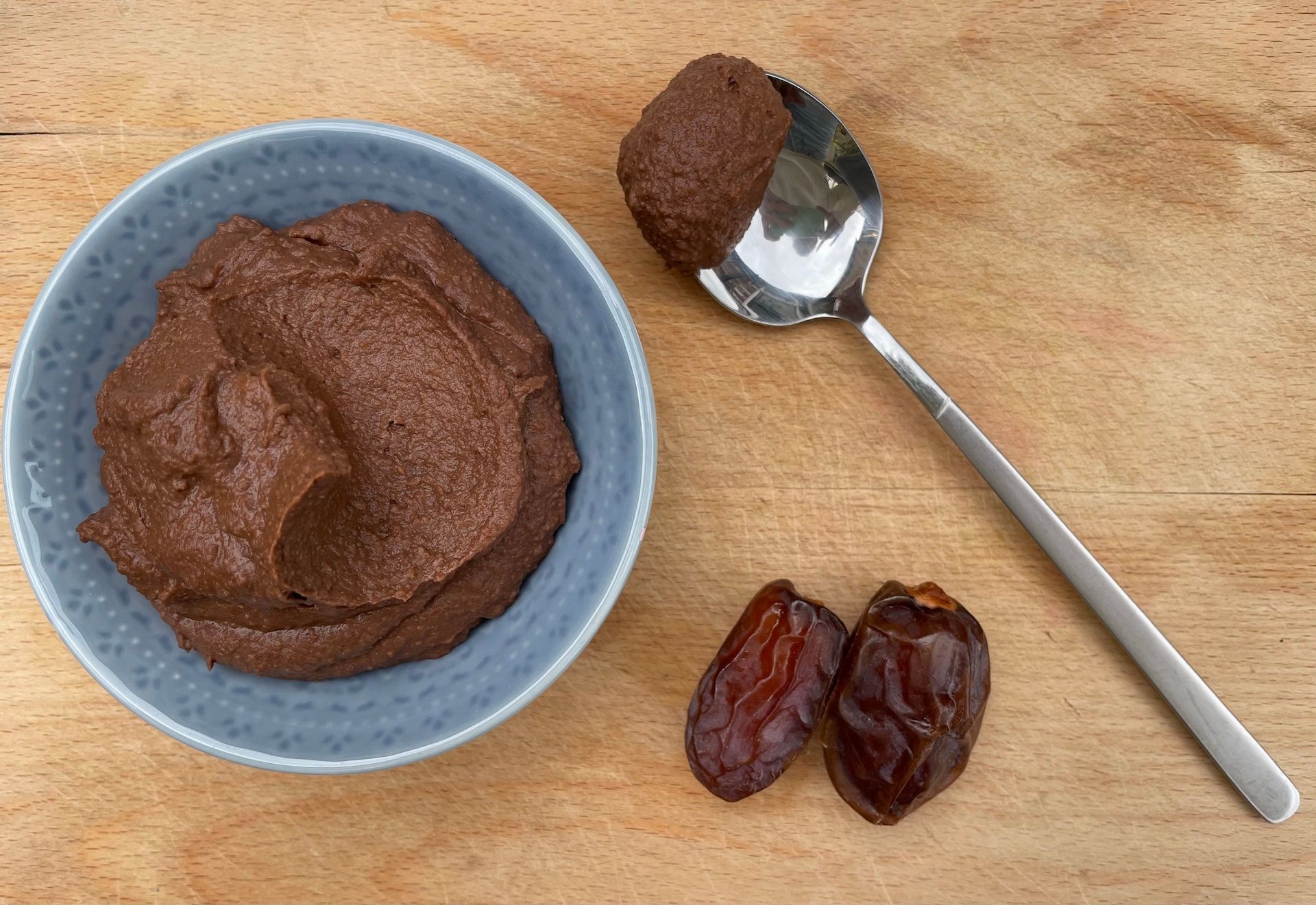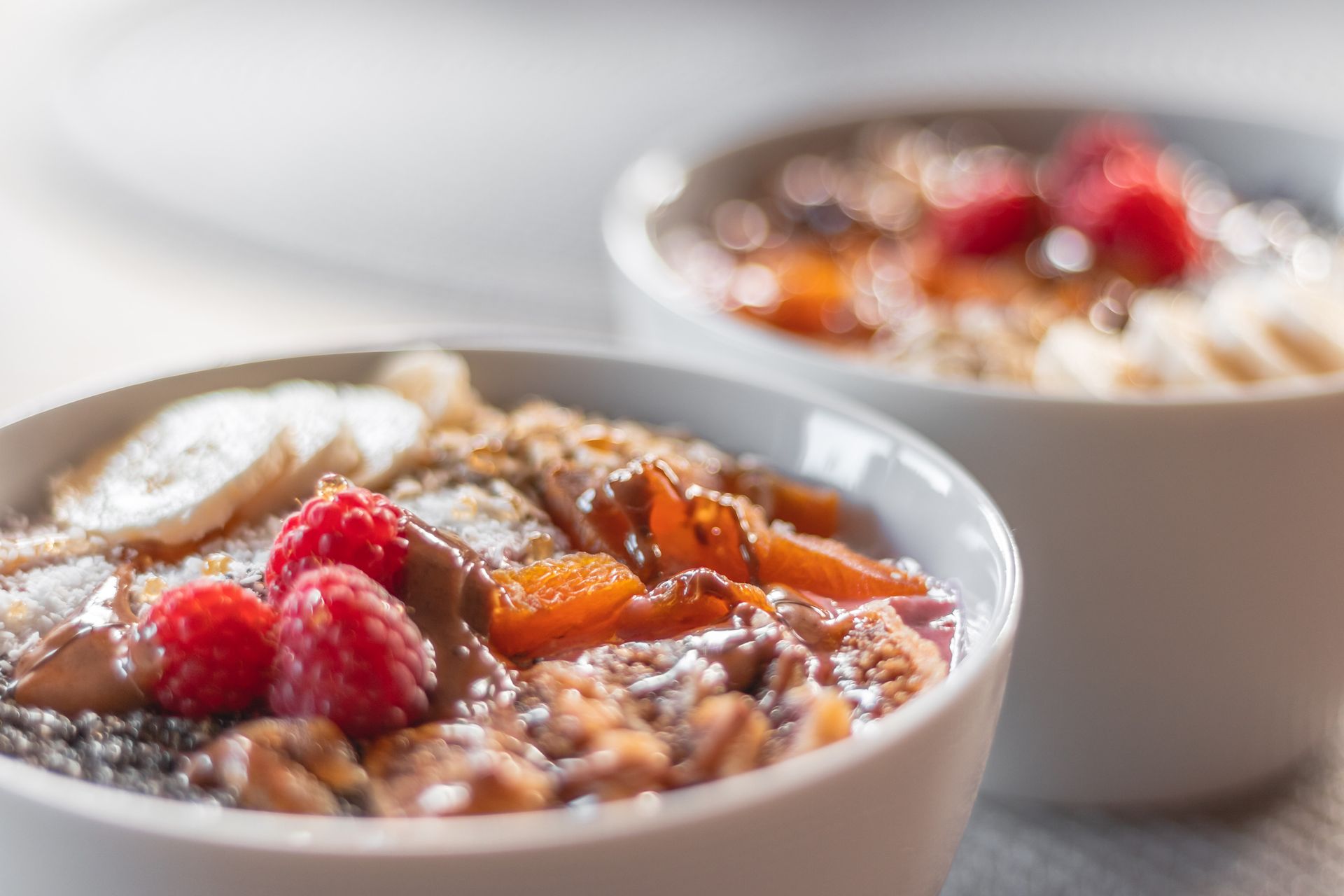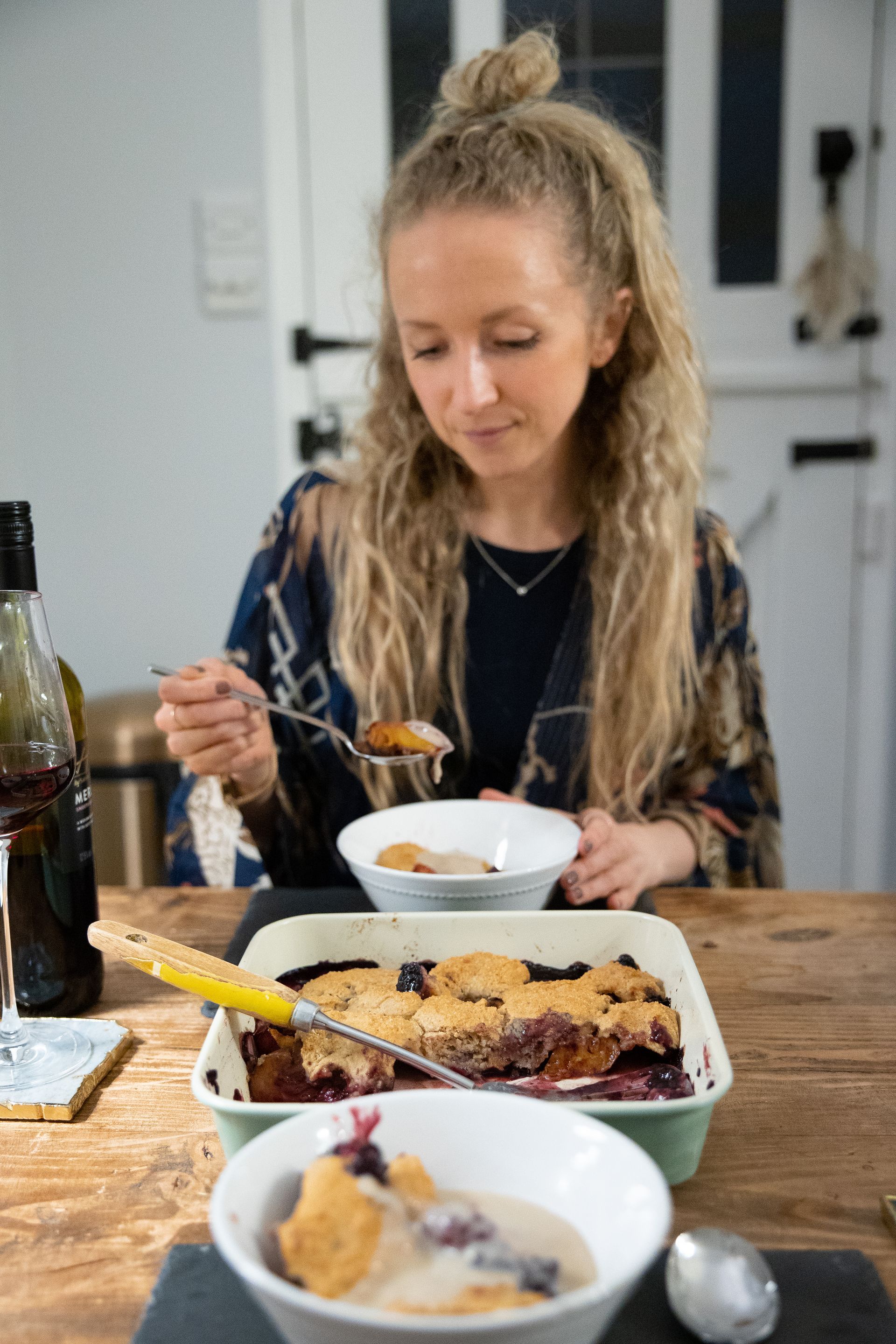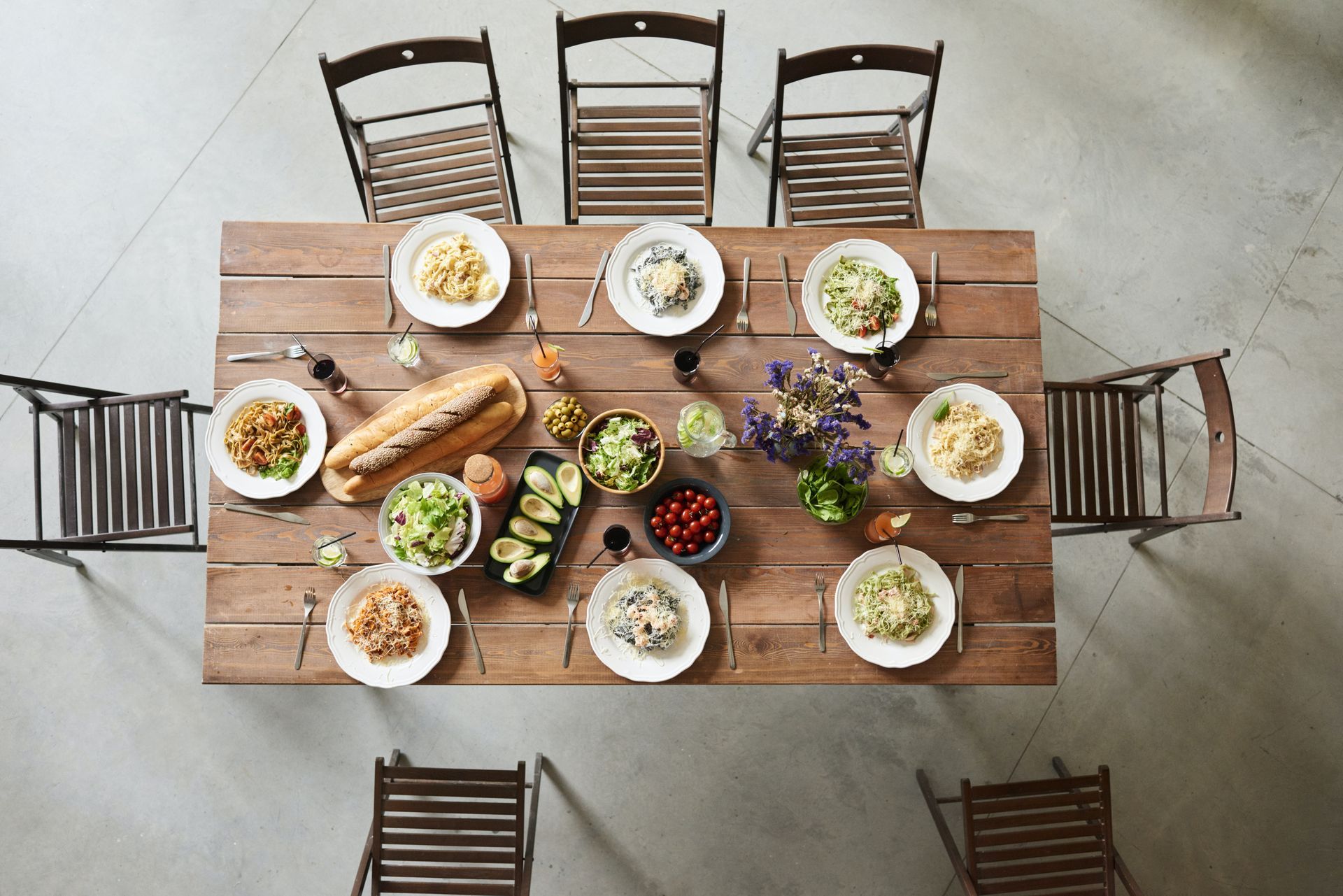Say Hello
Join our newsletter
Join our newsletter
Diet & Cholesterol
What is cholesterol?
You have probably heard of a fatty substance found in your blood called cholesterol. Although it receives a lot of negative press (for good reason), we do need a small amount of cholesterol in our bodies to stay healthy. Cholesterol helps us make hormones, vitamin D and bile acids that help us break down and use fats from our diet.
Our liver makes cholesterol naturally, meaning that we a don't have to consume it in our diet to get what we need. There are two main types of cholesterol:
- high density lipoprotein (HDL) cholesterol ('good' cholesterol)
- low-density lipoprotein (LDL) cholesterol ('bad' cholesterol)
HDL cholesterol is the type of cholesterol that is good for us as it helps to remove cholesterol from our blood. LDL cholesterol is referred to as our ‘bad’ or ‘unhealthy’ cholesterol because it is the type that can build up in our arteries leading them to become narrowed. The restriction of blood flow through narrowed arteries can lead to fatal or life-debilitating heart attacks or stroke.
Unfortunately, heart disease due to high cholesterol has become extremely common in the western world, predominantly down to what we eat and how we live our lives. But herein lies the good news, what we eat and how we live can dramatically reduce our risk and protect our health. My concern is that heart disease and strokes have almost become seen as a ‘normal’ part of getting older, but they don’t have to be. In fact up to 80% of all heart disease can be prevented through our day-to-day choices.
What causes high cholesterol?
There are a few different factors that influence our cholesterol levels. Alongside diet, that we will talk more about here, sedentary behaviour, smoking and a high body weight can also raise our cholesterol levels. Higher cholesterol levels can also run in your family.
When it comes to diet, the main issue is saturated fat found in animal products such as meat, dairy and eggs, as well as in processed foods such as cakes, pastries, biscuits, and pies. Although it has historically been viewed as a health food, coconut oil is a type of saturated fat and therefore should also be minimised in the diet.
The cells of our liver have LDL receptors on them that remove LDL (bad) cholesterol from our blood. Saturated fat appears to reduce how well these receptors work, leading to a build-up of cholesterol. The more saturated fat we consume, the more at risk we are of unhealthy cholesterol levels.
How can I lower my cholesterol without drugs?
In some cases, you will be advised to take a medication to lower your cholesterol. It is worth having a discussion with your doctor about whether these are necessary or whether lifestyle changes can be trialled first. Always take your doctors advise on board. What we eat can be a powerful tool in supporting healthy cholesterol levels and a healthy heart. If you want to lower your cholesterol using your diet as a first line treatment, here are my three top tips:
- If you consume animal products, swap to plant-based alternatives. This will not only reduce the saturated fat, it will also increase fibre, which we know binds to cholesterol in the gut and reduces re-absorption. For example:
- Swap your butter for a plant-based spread
- Switch your meat sausages or burgers for plant-based alternatives
- Switch your dairy for a soya alternative that is fortified with calcium
- Swap scrambled eggs for scrambled tofu
- Use chickpeas instead of chicken in your curry
- Swap your minced beef for lentils in your Bolognese.
- Increase your fruits and vegetables, aiming for 5 or more every day. This will increase fibre and may also help you manage your weight which also supports healthy cholesterol levels.
- Switch your white bread, pasta and rice for whole grain alternatives to increase fibre, micronutrients, and help you to feel full for longer.
In addition, you can add specific foods to your diet that have been shown to reduce cholesterol. The more of these you use, the better the effect:
Soya
Soya is high in protein but low in saturated fat, and is therefore great alternative to animal products. To get their cholesterol-lowering effect, aim for 2-3 servings per day which could include:
- 100g silken tofu or soya mince
- 80g frozen edamame beans or 35g roasted
- 250ml glass of soya milk
- 150ml soya yogurt
Oats & barley
Oats and barley contain beta-glucan, which is a type of fibre. Studies show that 3g of beta-glucan daily can have a cholesterol-lowering effect. You could include any 3 of the following to get your 3g:
- A bowl of porridge (30g dry weight)
- Oat-based breakfast cereal (35g) or one Oatibix
- 1-2 tbsp of oat bran
- 3 oatcakes
- 60g of cooked pearl barley (add to stews, casseroles or salads)
Nuts
Nuts are a natural source of unsaturated fats, which in contrast to saturated fat, have a beneficial impact of cholesterol levels. One handful (30g) of unsalted and raw mixed nuts, such as almonds, cashews, pistachios, walnuts and peanuts is recommended as a snack or as part of a meal.
Plant sterols or stanols
Sterols and stanols have been shown to lower cholesterol when we consume them in specific quantities. Instead of building up to these quantities using several portions of specially formulated fat spreads or milks, I would recommend one of the dairy-free mini drinks or mini yogurts daily, for example these ones.
Which dietary pattern is best for heart health?
When it comes to a healthy dietary pattern, for the reasons stated above, a wholefood plant-based diet can tick all the boxes. This style of dietary pattern minimises saturated fat and maximises fibre; two key factors in a heart healthy diet. Cholesterol builds slowly in our blood vessels over time, even from childhood, so it is never too early to start safeguarding the health of your heart by looking at your diet.
References
Rosie is a plant-based registered dietitian, founder of Rosemary Nutrition & Dietetics, and works both in the NHS and as a freelance dietitian.
You can contact her with any queries via Rosemary Nutrition & Dietetics on rosie@rosemarynutrition.co.uk or follow her on Instagram at @plantdietitianrosie
